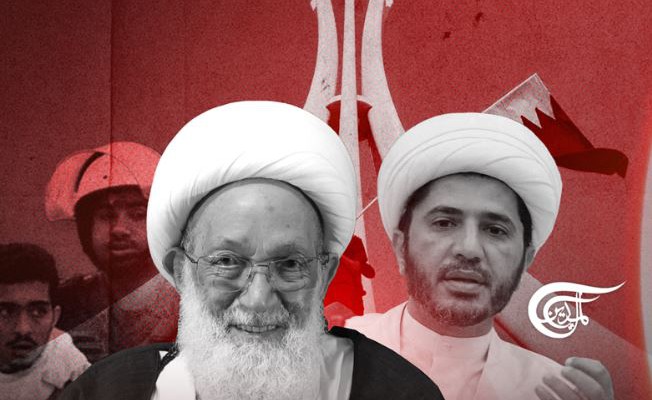8 years since the arrest of Bahrain’s epitome of peaceful struggle

Throughout his political struggle, extending from the 1990s until the date of his arrest, Sheikh Salman devoted the better part of his life to demanding the legitimate rights of citizens.
Bahrain’s jailed opposition leader, Sheikh Ali Salman, has spent the better part of a decade behind bars for his political stances that underscore the Bahraini opposition’s commitment to peaceful democratic reforms.
Sheikh Salman is the Secretary-General of Bahrain’s leading opposition group, Al-Wefaq National Islamic Society, which was arbitrarily dissolved in 2016 as part of Manama’s widening crackdown on dissent.
The conclusion of the unfair trial in 2015 resulted in a 4-year sentence. In 2018, as he neared the end of his initial sentence, Sheikh Salman was sentenced to life in prison on phony espionage charges. Amnesty International described the verdict as “a travesty of justice.”
Besides, multiple International rights groups, the UN, as well as several foreign governments, and most recently the EU Parliament, have repeatedly called for Sheikh Salman’s unconditional release.
Meanwhile, Alistair Carmichael, a UK MP, has called on his government not to recognize the outcome of November’s elections, and to urge Manama to release all opposition figures, including Sheikh Ali Salman.
Sheikh Salman’s charges on which he has been arbitrarily convicted stem from mere speeches and a 2011 phone conversation with -then- Qatari foreign minister Hamad bin Jassim during which he urged Doha to mediate in Bahrain’s political crisis.
According to the regime, Sheikh Salman was communicating with Qatari officials “to overthrow the constitutional order.”
Nevertheless, last March, Hamad bin Jassim told a Kuwaiti newspaper that both Manama and Riyadh were kept in the loop about those phone calls, which were made from a palace belonging to the Bahraini monarch.
Besides, Jassim stressed that the calls were part of a broader initiative involving the former U.S. Assistant Secretary of State for Near Eastern Affairs Jeffrey Feltman.
Ayatollah Sheikh Isa Qassim, Bahrain’s top Shiite cleric, equates Sheikh Salman’s jailing to the imprisonment of peaceful political activism describing him as a “pillar of the reformist movement in Bahrain and a man of sincerity.”
While in prison, Sheikh Salman turned 56 in October and become a grandfather. He has repeatedly thanked the Bahraini people’s solidarity saying he “fell short in his quest to provide them with their rights.”
Throughout his political struggle, extending from the 1990s until the date of his arrest, Sheikh Salman devoted the better part of his life to demanding the legitimate rights of citizens, most notably equality in employment, parliament with full legislative and oversight powers, an elected government that represents the popular will, an independent judiciary and stopping political naturalization, for the sake of all Bahrainis.
In the 1990s, Sheikh Salman led the “Dignity Uprising” before the authorities deported him to the UAE after which he left for London. He returned home in 2001 to become Secretary-General of Al-Wefaq, and an MP in 2006, then formulated the largest parliamentary bloc.
Sheikh Ali Salman has been greatly influenced by Sheikh Abdul Amir Al-Jamri and Ayatollah Qassem, two of Bahraini’s prominent revolutionary figures.
Observing Sheikh Salman’s speech, especially during the sharp political turns that Bahrain has gone through, will discover his serious adherence to peaceful action. Even while behind bars, he has continued to call for a fruitful national dialogue that cherishes Bahrain’s interest and attains national consensus.
Sheikh Ali has established bound relations with the political, religious, cultural, and media elites in Bahrain and beyond; he is a stubborn and tireless negotiator, but at the same time he keeps the doors open to dialogue, which he believes is “in the interest of all, the rulers and the ruled; it’s the cornerstone for improving our economy and living conditions, and achieving political stability.”
Achieving this matter is not impossible, but it requires serious and sincere action that resonates trust between the parties to the political process and fulfills the aspiration of the people so that Bahrain retrieves its unity, which is the demand of all Bahrainis, regardless of whether they were leftist or Islamic, and bypassing sectarian affiliations.
Hence, the continuation of Sheikh Ali’s detention along with his fellow opposition leaders means the prolongation of the political crisis in the country.
 TheAltWorld
TheAltWorld 
0 thoughts on “8 years since the arrest of Bahrain’s epitome of peaceful struggle”